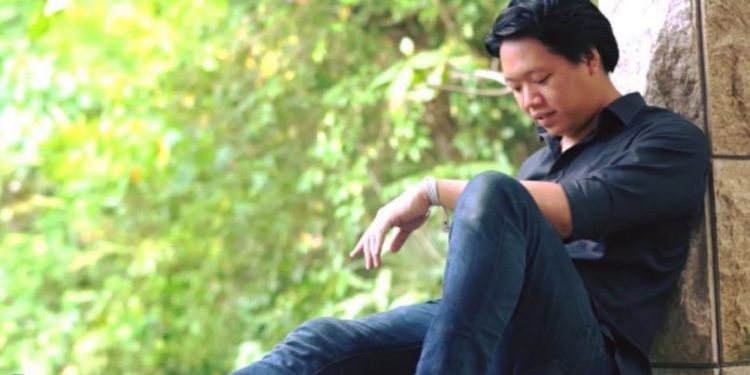Fish farmer. Single father. And leading the charge for change in Singapore’s sustainability scene. Shannon Lim founded OnHand Agrarian in 2011 and has been on a mission since to bring fresh, sustainable food to consumers, through the use of a system that prioritises waste reduction.
His other ventures include Reefincarnate, a quirky service that enables people to be “reefincarnated” as a coral or clam, by merging their cremated remains with the species of coral of their choice.
Mr Lim claims to have always been an environmentalist, having grown up with his grandparents, who lived on a piece of land in eastern Singapore with a jungle in its backyard (now a condominium). He explains that his grandparents, who were originally from across the Causeway, had a different, more laissez faire attitude about leaving children to explore on their own.
“I got to play around in the jungle. My perception of what a natural space should look like is very influenced by my childhood,” he shares.
His foray into sustainable agriculture started with him looking for avenues to invest what he was earning as a financial planner, a job that he says “paid quite a bit” and afforded him plenty of “free time.” Oil and gas were not an option, but the idea of fertilisers did take root before this thought occurred to him: “If fertilisers suddenly became very expensive, what happens to food production? So I thought there was a socioeconomic issue there.”
The solution, or so he naively thought, was to develop affordable infrastructure for floating fish farms, but he learnt soon enough that these farm owners did not have a lot of money to invest in his product: “I was sitting on a lot of equipment, and decided to start my own farm and give it a try.”
But his passion for seafood sustainability, in particular, originates from a more personal place.
NOTE: This interview has been edited for clarity and length.
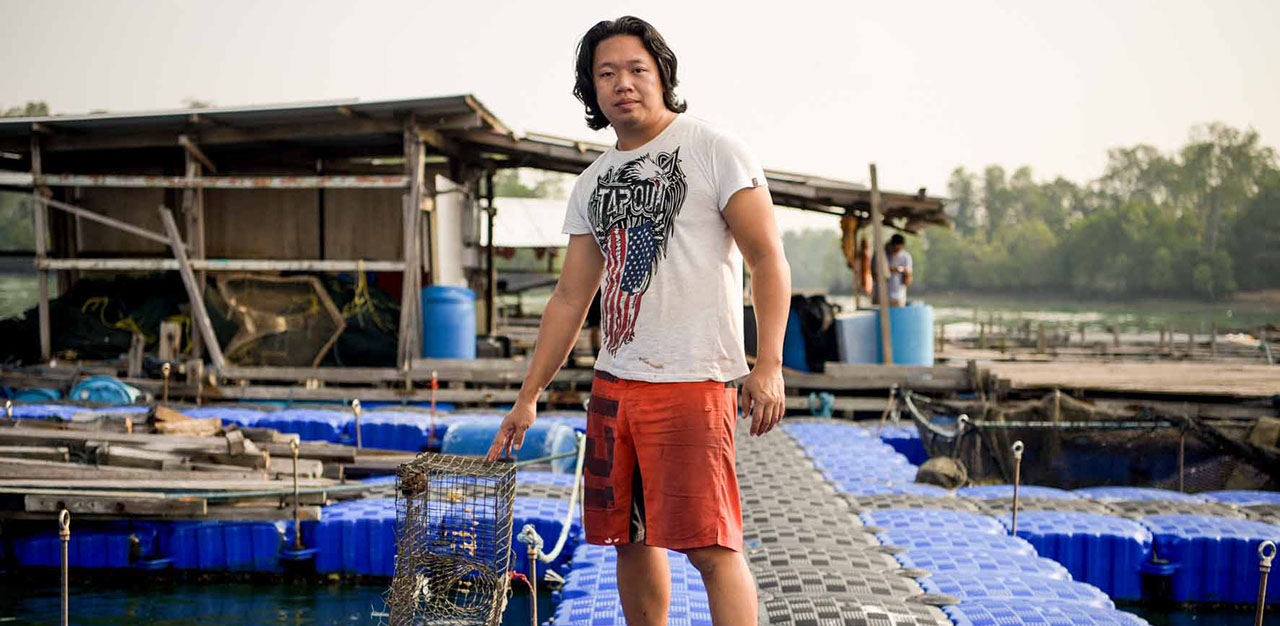
Shannon Lim: I was raised by my grandmother. And a lot of my memories of her involve her cooking crabs and prawns and fish and all that for me. A lot of the things she used to cook are no longer available in sizes which she used to cook them, and some of the fish are gone.
I don’t want my daughter to miss out on those things… I want my daughter to enjoy all the things I enjoyed. I’m Peranakan, cooking is a very big part of my identity and how I show affection to my kid.
I like cooking for her, I like it when she finishes her food, and if she’s not enjoying her food I don’t feel like much of a parent.
TheHomeGround Asia: Why do you think it’s important to consume seafood responsibly?
SL: So that we have enough good fish left for future generations. Because if we don’t, and irresponsibly eat all the good stuff [constantly] without properly replacing it, then we’re going to be left with all the [seafood] that nobody wants.
THG: What’s one common misconception about your industry that people have?
SL: That you should only eat the bad stuff and the boring stuff, and that if anything is endangered you shouldn’t eat it. I have the opposite view – I think that if you sustainably and intelligently harvest the good stuff, and it should always be possible, just maybe not in the quantities that you want.
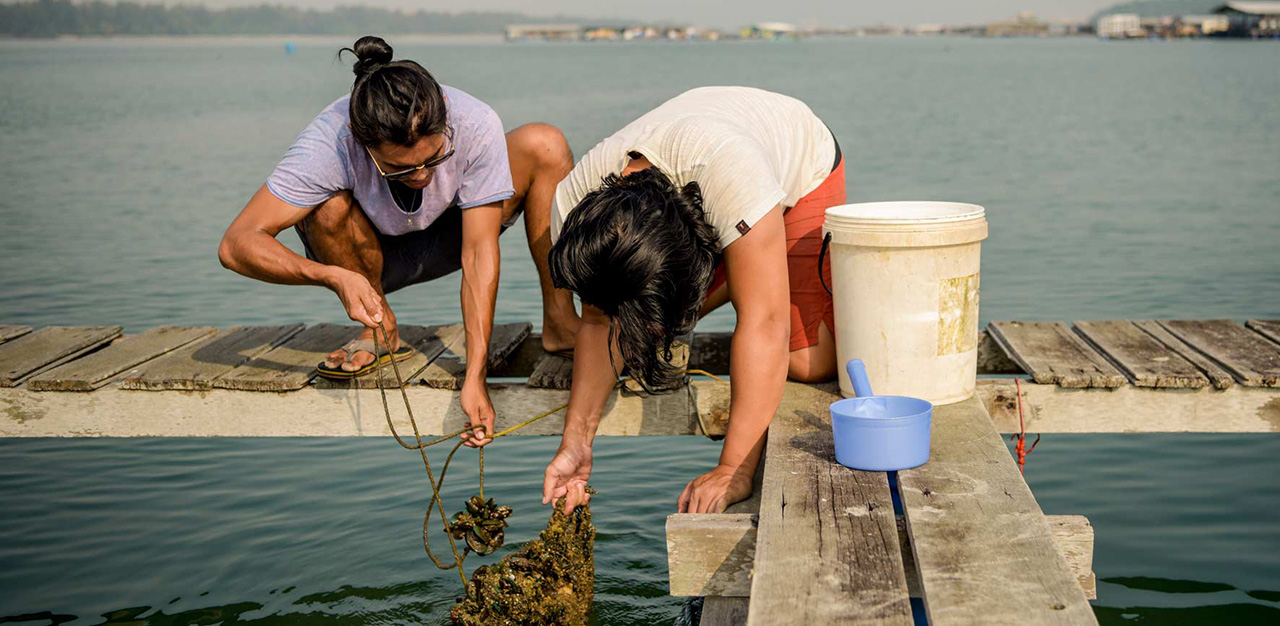
THG: Has there been greater support for local farms?
SL: I think Singaporeans in general are extremely supportive of local farms. A lot of our subscribers will pay for their food in advance. There’s practically no other industry on earth where people will pay for food a year in advance.
THG: How has the pandemic affected your business?
SL: Our revenue doubled, because everyone was too afraid to go to supermarkets to shop [last year]. The Solidarity packages (to support Singapore households during the pandemic) came out about a year ago, so people took that money, [and] they paid a year in advance [for seafood].
But around the first quarter of 2021, a lot of people started losing their jobs. About 30 per cent of our subscribers have cancelled. A lot of them had to go overseas [to find] new work or [because] they lost their jobs.
THG: What’s one common misconception about your industry that people have?
SL: That having a scientific understanding of things is important, but you shouldn’t let it get to your head and think that you know better than nature. A lot of people focus on science and engineering and they think that you can build man-made systems that are more efficient than natural systems. Usually they’re wrong.
THG: Tell us more about your subscription boxes.
SL: You get six items [in our subscription box]. Fish, prawns, crabs, mussels, clams. Those are the standard things, so you know that at least half of your box is predictable. The other half of your box is a random seafood item that we pull up from the nets, or that we have too much of on that day. Lately it’s been squid.
When people are used to buying from us, they keep buying from us. Partly because there’s this sense of familiarity, partly because if their mum doesn’t like the prawns their mum can call and nag me. There’s traceability.
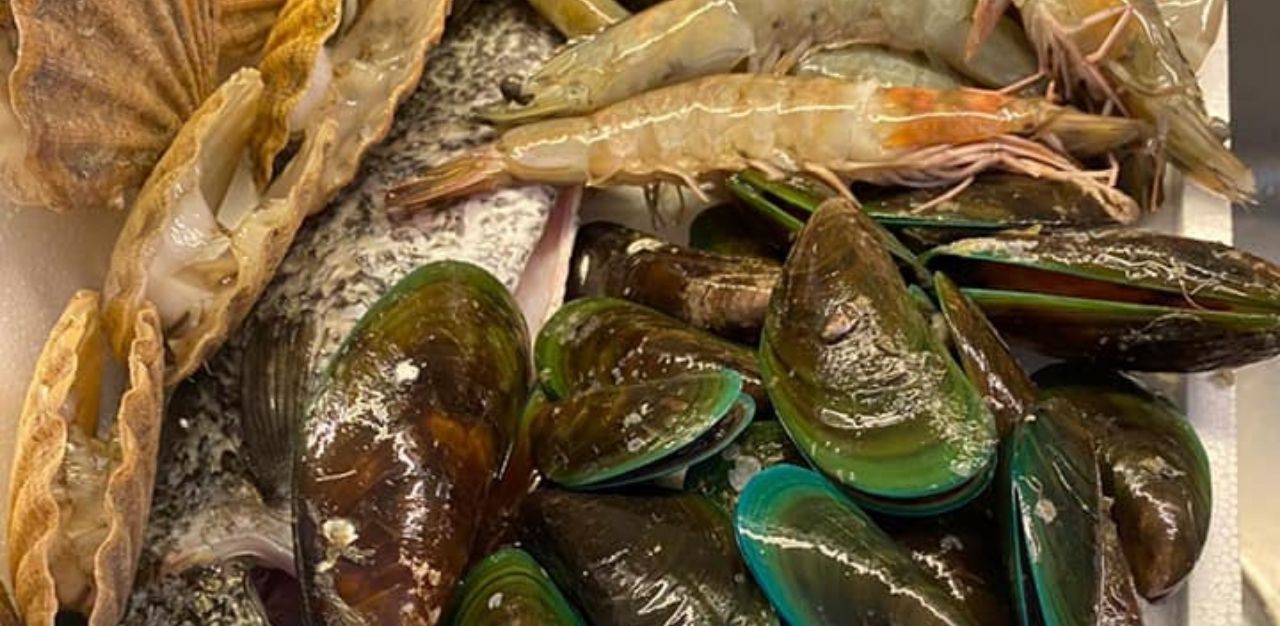
THG: What are some social organisations you’ve worked with, and what inspired you to do so?
SL: When COVID hit, a lot of the [migrant] workers were unable to get out of the dormitory and buy food. And whether or not you like it, the food was not culturally correct. I think when you’re confined in a space you would want to eat food that you’re familiar with. And so we ended up sending a lot of fish to migrant workers.
An anonymous property agent paid $10,000 to give out 3,500 kg of food to migrant workers; I matched her donation personally, [so] 7 tons of food was given out.
If you’ve worked with them for a long time, you’ll realise that a lot of them will go catch fish on their own, over the weekends. A lot of them come from villages, by a river. So a good weekend activity [would be] you and your friend [with] a net, [going] to a river and catching a fish, and then you get this big 15kg fish. You bring it to one guy’s house, break it down and cook it. And then you have your weekend meal together.
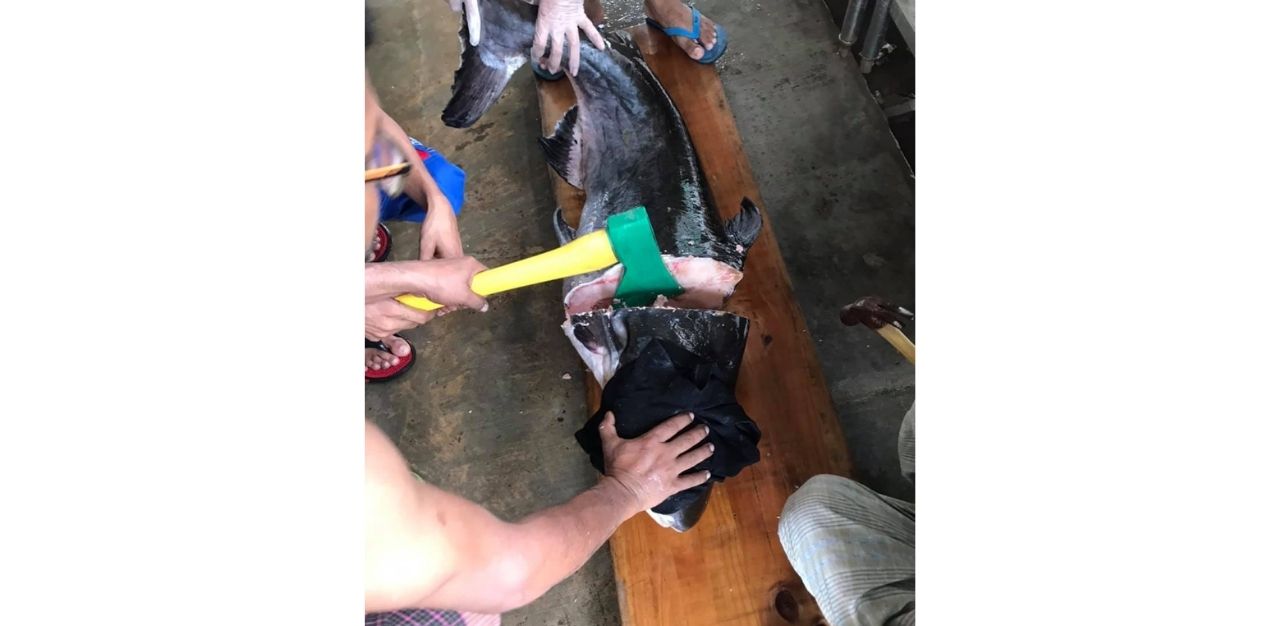
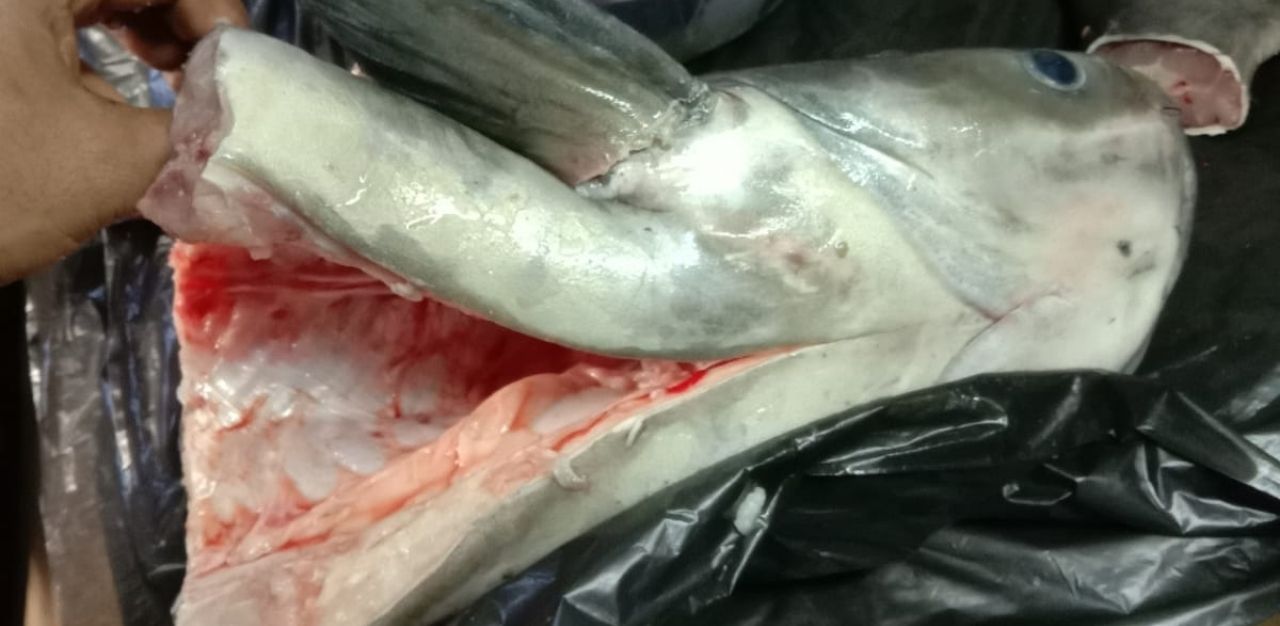
We [also] get involved with Riding for the Disabled Association. A few of my friends volunteer there, and I went to school with Maximillian Tan. He’s one of our Paralympians [who] does equestrian sports. He has cerebral palsy.
I always found it weird that Paralympians never got as much attention as normal Olympians. If you think of it, a game or a sport, they’re basically doing the Olympics in hard core mode… They don’t get enough support, I guess. So one of the things we could do was provide good quality food, because all athletes go through food like crazy, and it’s one of their biggest expenses.
THG: Have you worked with the medical community?
SL: We were providing discounted meals. After the first Covid-19 death I wanted to do something nice for the medical community in Singapore. Long story short, I consulted a few of my [doctor] friends. A few of them said, “No, we don’t need it, don’t give anything”; [some asked for] a discount. I thought, ‘Let’s do our part… why not help them out?’
For the last year we were giving out seafood at cost price to any sort of medical worker or medical employee. Hospital administrative, cleaners. And we were giving it to… GPs first, because my view is that GPs are the first line of defence. When people get sick or have flu-like symptoms, they’re not going to go straight to a hospital, they’re going to go to a GP [instead]. And very early on, GPs were not getting much support for PPE (personal protective equipment). So the price of PPE went up because of the grants being given out and an increase in demand. But GPs had to shoulder all that cost on their own.
THG: Are there any other groups you’d like to work with in the future?
SL: I am trying to support a few marine conservation groups that are not based in Singapore. We’ve got a project with a marine conservation group where we’re trying to set up floating concrete islands outside of territorial waters, basically south of Bangladesh, and we’re going to give that to a very prominent marine conservationist… Sylvia Earle. She set up the world’s biggest marine reserve. She’s like the grandmother of ocean conservation.
So it’s a sociopolitical experiment. If I give her an island and she’s able to claim that chunk of ocean, and the chunk of ocean then becomes a nature reserve that belongs to her, will that be a more effective form of marine conservation?
We’re [also] trying to work with the angling community in Singapore. Especially now. With Covid-19, a lot of people are jobless, and they’re fishing to relieve stress.
We’re going to try to pay them to fish because line-caught fish are some of the most sustainable forms of seafood you can get. You only hook what you want, and if you don’t want it, you have the option of throwing it back in.
THG: What’s it like being a single parent and balancing that with your work at OnHand Agrarian, and what are some struggles that you face with that?
SL: The single parent thing is a bit weird because that basically dominates my entire social life. I’m in this awkward position of being extremely free when all my friends are at work. So you end up being friends with a lot of other business owners who are similarly free, especially now with Covid.
All the problems that you hear about with single mums are true for single dads but single dads have the added problem of no one taking us seriously. A lot of people don’t know we exist… You would end up in situations where you have to go for reservist [but] there’s no one to look after your kid.
As for balancing it with work, because I own the company, the only time I have to say ‘no’ to spending time with my daughter is when I have to do deliveries, which is Saturdays when she’s in her ballet class.
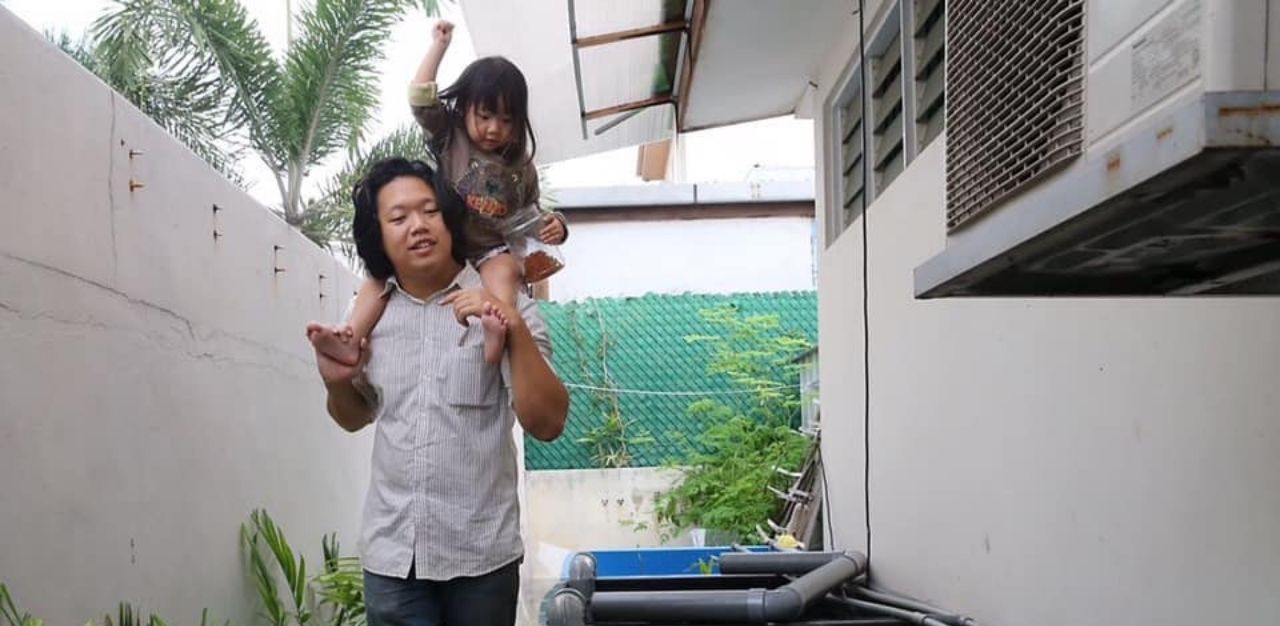
THG: How has being a single parent influenced your work ethic and the way you approach your business?
SL: I think I was one of the first companies in Singapore to provide parental leave for male employees… I was basically self-employed when my ex-wife was pregnant, so I got to be around, and to do all the confinement lady stuff – cooking meals, doing laundry and all that… I cannot imagine how difficult it is if you leave the mother at home alone.
After that I said guys are getting parental leave too, because both parents are important.
The other thing is that I have a general rule with all my staff: If you have a family commitment, you are not supposed to be at work. If your family cannot trust you to know your priorities, I cannot trust you to run my company. [This is] especially true for my management staff.
If you have people who cannot prioritise the genuinely important things, then it doesn’t make a lot of sense to hire them. Because then you clearly have somebody who cannot prioritise, in a senior management position.
THG: What inspired you to adopt this approach?
SL: I’m not sure. Maybe because I was in sales. In sales you learn that you can be physically present, but if you’re not on your A-game then you might as well not be there.
THG: Would you want your daughter to continue your life’s work with OnHand Agrarian?
SL: I want my daughter to have options. I know she enjoys what I’m doing, and I think it’ll be adorable if she took over one day. But at the same time if she got sick of it or changed her mind I want her to be in a position where she can say ‘no’ and just move on to something else. I’m raising her so that she has multiple options and multiple skills.
THG: Would you consider yourself an environmentalist or conservationist?
SL: Yes and yes, although I tend to disagree with a lot of conservationists and environmentalists. I’m a very people-first environmentalist. But on top of that you need a nice environment to survive in. And I think as we’ve all experienced over the last one year, surviving alone is not enough. Surviving and not having anything to do makes surviving a very unattractive concept. So I think we need good beaches and outdoor environments and spaces; we’re attracted to those things, we’re very attracted to them whenever they’re taken away. I just want to make sure it’s around, for my daughter.
THG: Do you want to leave a legacy?
SL: I don’t know, I’ve never thought of that. When I die I might be a coral. If I ever do die, I want to make sure that my grave is somewhere people can have fun… I hope my descendants snorkel and barbecue on my grave. And they have a good time.
Join the conversations on TheHomeGround Asia’s Facebook and Instagram, and get the latest updates via Telegram.



